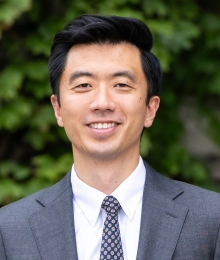Appellate Litigation Clinic
Course Information
- Course Number
- L9277
- Curriculum Level
- Upperclass
- Areas of Study
- Administrative Law and Public Policy, Civil Procedure, Litigation, and Dispute Resolution, Constitutional Law, Labor and Employment Law, Lawyering, Racial, Economic, and Social Justice
- Type
- Clinic
- Additional Attributes
- New Course, Experiential Credit
Section 001 Information
Instructor
 Dennis Fan
Associate Clinical Professor of Law
Dennis Fan
Associate Clinical Professor of Law
Section Description
The Appellate Litigation Clinic is a one-semester clinic where students represent individuals and organizational clients (including nonprofits, advocacy groups, and government agencies) in civil appeals that proceed through New York’s appellate courts. Students will: draft, revise, and file appellate briefs in a range of matters in New York’s Appellate Division; gain strategic litigation judgment as to the selection and framing of issues and arguments; and develop their oral advocacy skills through moots and argument preparation. Throughout the semester, students will: participate in litigating more complicated appeals or participate in amicus briefing, including in the Second Circuit or New York’s Court of Appeals; contribute to advocacy projects around procedural or substantive reform in appellate courts; and apply their problem-solving skills to other aspects of civil litigation. Through their advocacy, clinic students will: process factual and procedural records; deepen their grasp of substantive legal doctrine; build their capacity for independent research and writing; gain skills to navigate client interactions; strengthen their research and research abilities and written advocacy; hone their strategic judgment and creative abilities; grapple with ethical issues around appellate representation; and develop a comparative understanding of different appellate systems.
Clinic students work closely with the clinic director, colleagues, and clients. The clinic incorporates a pre-semester intensive skills training, where students would be introduced to New York’s appellate courts, develop their writing and analytical abilities, and gain their first exposure to their clients and case records. During the semester, students participate in a seminar that addresses the theoretical bases for their work and the structural components of appellate litigation, as well discusses the substantive legal doctrines raised in their appeals. These sessions present opportunities for students to reflect on their ongoing projects, learn from their interactions with other students, and develop skills that support their fieldwork, including in
- School Year & Semester
- Spring 2025
- Points
- 3
- Method of Evaluation
- Other
- J.D Writing Credit?
- Minor (automatic)
- Major (only upon consultation)
- LLM Writing Project
- Upon consultation
Learning Outcomes
- Primary
-
- At the end of the course, students will have acquired understanding of and/or facility in a specific body of law, including major policy concerns
- At the end of the course, students will have acquired understanding of and/or facility in doctrinal analysis, including close reading of cases and precedents, and application to facts
- At the end of the course, students will have acquired understanding of and/or facility in statutory and regulatory analysis, including close reading of statutes and regulations, and application to facts
- At the end of the course, students will have acquired understanding of and/or facility in jurisprudential considerations in legal analysis
- At the end of the course, students will have acquired understanding of and/or facility in the historical development of law and legal institutions
- At the end of the course, students will have acquired understanding of and/or facility in comparative law analysis of legal institutions and the law
- At the end of the course, students will have acquired understanding of and/or facility in ethical and professional issues
- At the end of the course, students will have acquired understanding of and/or facility in various lawyering skills, for example, oral advocacy, legal writing and drafting, legal research, negotiation, and client communication
Course Limitations
- Instructor Pre-requisites
- None
- Instructor Co-Requisites
- None
- Requires Permission
- Yes
- Recommended Courses
- None
- Other Limitations
- None
